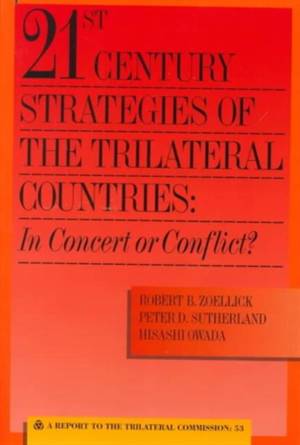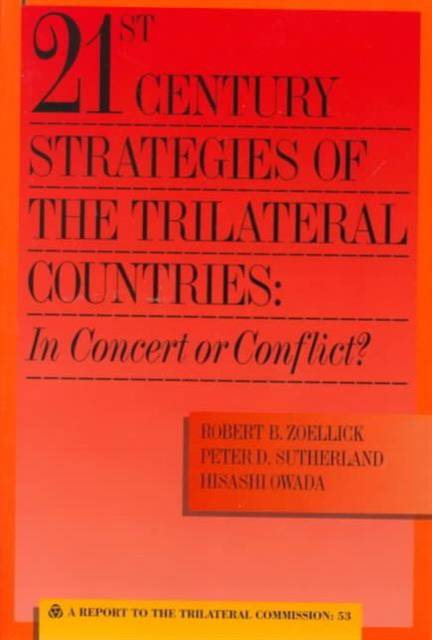
- Retrait gratuit dans votre magasin Club
- 7.000.000 titres dans notre catalogue
- Payer en toute sécurité
- Toujours un magasin près de chez vous
- Retrait gratuit dans votre magasin Club
- 7.000.0000 titres dans notre catalogue
- Payer en toute sécurité
- Toujours un magasin près de chez vous
21st Century Strategies of the Trilateral Countries
In Concert or Conflict?
Robert B Zoellick, Peter D Sutherland, Hisashi OwadDescription
This book is centered on essays by Robert Zoellick, Peter Sutherland, and Hisashi Owada. The United States, Zoellick writes, has four strategic objectives that would preserve and expand the political community it sponsored after World War II. First, the United States needs to overhaul the ties with its two primary overseas partners, Western Europe and Japan, to better meet a new generation of challenges. Sutherland frames the central challenges for the European Union in terms of maintaining the supranational core in an enlarged Union whilst contemporaneously relating Europe positively to globalization.... (A) failure to achieve internal reform will seriously hold back the EU's global role; enlargement would be put on hold, energies would be diverted to internal issues, confidence would evaporate and the EU would lose credibility and support among its citizens. Owada writes about Japan and also about trilateralism in the present-day international system. The basic rationale of trilateralism in this present-day system is for the consolidation of the order based on pax consortis in an age of interdependence.... The problems can only be dealt with adequately through a mechanism of management based on shared responsibility among the major players in the system that have the will and capacity to play such a role.
Spécifications
Parties prenantes
- Auteur(s) :
- Editeur:
Contenu
- Nombre de pages :
- 66
- Langue:
- Anglais
- Collection :
- Tome:
- n° 53
Caractéristiques
- EAN:
- 9780930503789
- Date de parution :
- 01-09-99
- Format:
- Livre broché
- Format numérique:
- Trade paperback (VS)
- Dimensions :
- 152 mm x 229 mm
- Poids :
- 141 g

Les avis
Nous publions uniquement les avis qui respectent les conditions requises. Consultez nos conditions pour les avis.






